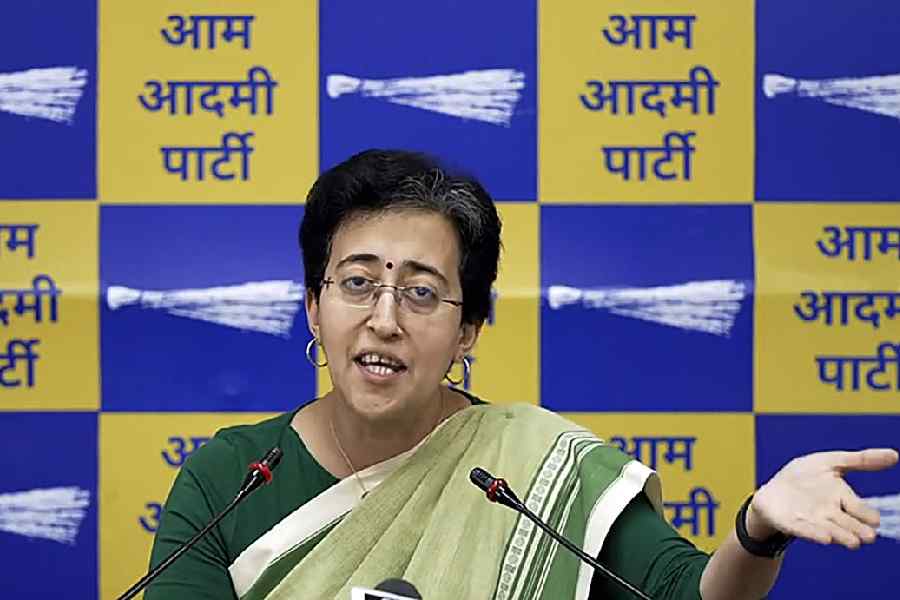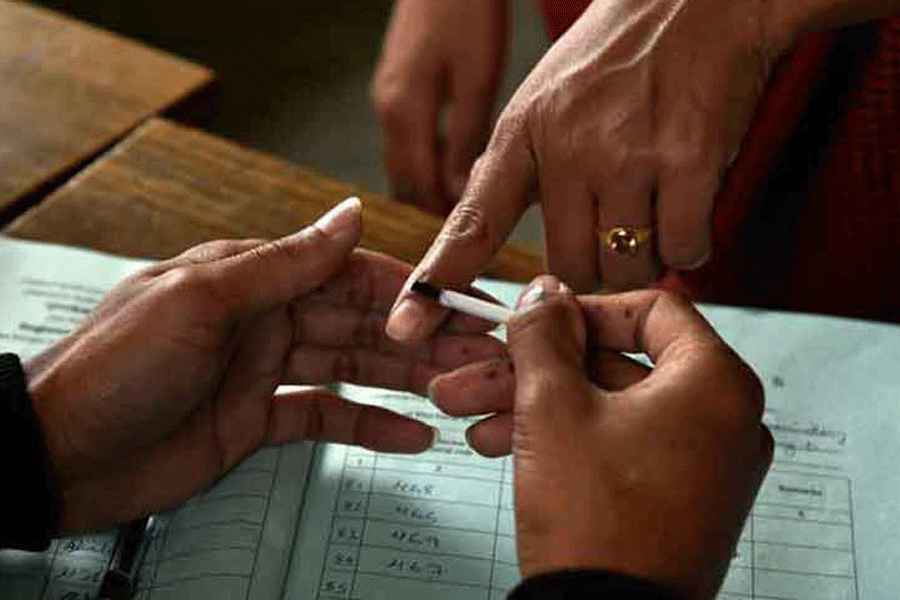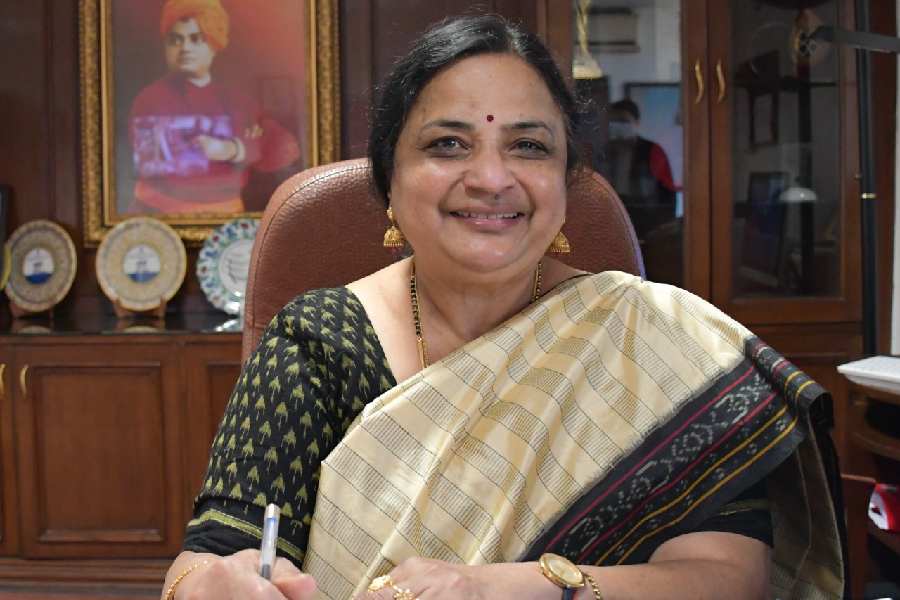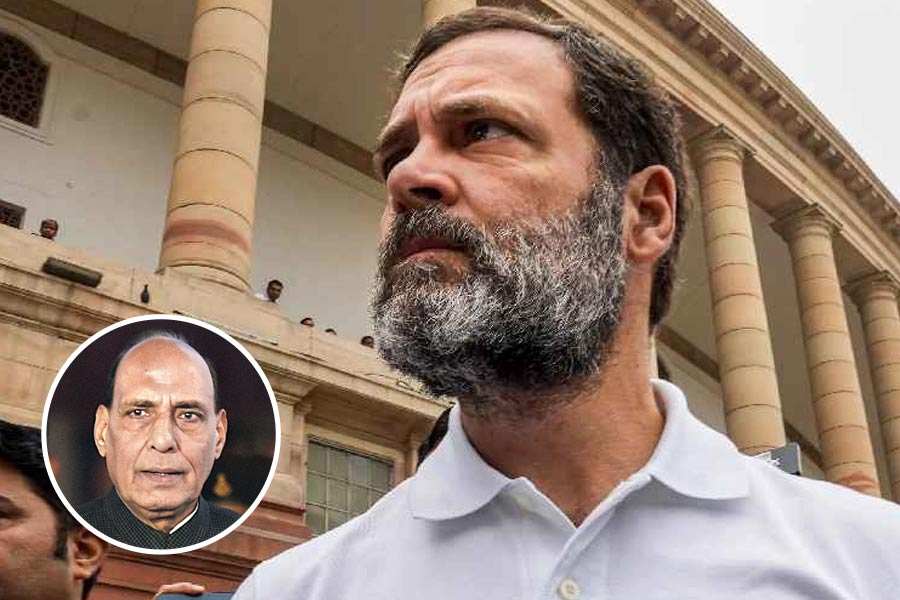The Bharatiya Janata Party’s choice of Manipur’s titular customary king, Leishemba Sanajaoba, as its candidate for the election to the state’s lone Rajya Sabha seat has, expectedly, stirred up a storm, which may not subside easily. Sanajaoba is a direct descendant of the last king of Manipur, Maharaja Bodhchandra Singh, who signed the merger agreement with the Indian Union on September 21, 1949 in Shillong under controversial circumstances of captivity and duress, a matter of considerable resentment in the state, serving as the fuel for many protests, including those with hues of insurgency.
Though Sanajaoba is no longer the monarch of Manipur legally, unlike in most other former princely states, the institution of kingship remains powerful in the emotional sphere as a cultural symbol of the erstwhile kingdom and commands a substantial following among those still nostalgic about that bygone era and suffering from an abiding sense of loss of sovereignty. Sanajaoba, therefore, continues to be the symbolic and spiritual head of many ritualistic traditions of the old Manipur kingdom. These are still practised faithfully by many adherents in memory of that lapsed antiquity.
The power and influence of this intangible constituency are such that in modern times the state government has actually adopted some of the most prominent of these rituals, in particular a festival called Mera Houchongba, a celebration of harvest, presided over by the titular king, in which hill and valley communities meet and exchange gifts. This festival and many more like it are characterized by ritualistic re-enactments of a common origin and the fraternal bonds that these communities once shared before a group of them migrated from the hills to the fertile valley as it dried and became suitable for settlement and wet-rice agriculture.
Understandably, the pulse of this revivalist tradition is especially strong amongst followers of the pre-Hindu Meitei faith. The Meiteis became Hindus in the early 18th century after one of their kings, Pamheiba or Mayampa, who later called himself ‘Garibniwaz’, arguably one of the most powerful rulers in the erstwhile kingdom, not only embraced the faith but also made it mandatory for all his subjects. The hills remained outside this sphere and went the Christian way only in the early 20th century, thanks largely to the yeoman work by a dedicated missionary, William Pettigrew. Religion also became an important seed behind the infamous fault line between Manipur’s hill and valley populations.
The BJP’s move to enlist Manipur’s titular king into its fold as well as the protest against this move must be understood against this unique historical experience. Many in this intangible constituency of customary bondages and ritualistic enactments — Clifford Geertz called this the “theatre state” in the strikingly similar context of 19th-century Bali — see the BJP’s move as a strategy to undermine this symbolic sphere. They, therefore, are demanding that Sanajaoba abdicate his customary kingship and cease to be the leader of this ritualistic domain they hold dear if he chooses to go ahead and enter the electoral fray.
Manipur is on the cusp of a peculiar situation today. This is because the ritualistic State, which exists on the symbolic plane, and the institutions of the modern State, which form the quotidian reality, exist as parallel universes within the same chronological time frame. Till the current controversy, these two spheres had not infringed upon each other’s spaces. If, in the second sphere, people organize themselves under the banner of political parties and bitterly contest for State power, in the first, the same rivals stand on a common platform of faith and are loyal to a shared, archaic memory. It is this world, or state of mind as many would call it, which feels threatened by Sanajaoba’s move to contest for Manipur’s Rajya Sabha seat under the banner of the ruling BJP. Indeed, the move can very likely leave this world deflated of its energy and splintered beyond recovery, signs of which are already visible.
The BJP’s motive in choosing Sanajaoba seems quite obvious. The party wants to win over this emotional constituency. Beyond this, it is unlikely the party has an interest in the candidate — a man who has shown little skill or inclination towards politics, especially its electoral variety. The party’s hope is that with this move, it would be able to harness a great part of the new surge of energy in recent decades which drives the indigenous people’s movement in the state. But judging from the response so far, this plan is set to backfire. What it will achieve in the end is the splintering of the territory.
If the intent, as stated by the BJP, was to enlist the goodwill of this constituency to the national cause, Sanajaoba’s nomination could have come from the president to fill one of the 12 seats at his discretion to bring in people of extraordinary achievement and merit in the fields of arts, culture and social service. This, unfortunately, was not the case. The BJP seems to want to field Sanajaoba as its favourite gladiator in the state’s electoral arena.
The author is a senior journalist










